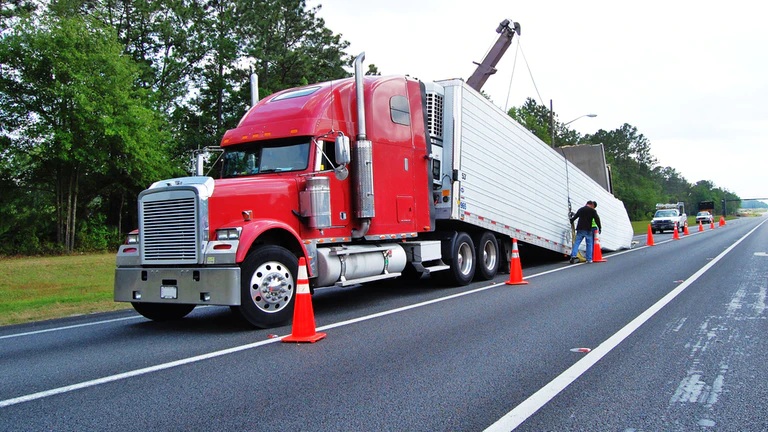Matthew Amodeo, president of Osprey Underwriters, shares his insights on insurance trends in the trucking industry and what fleets can do to avoid big insurance claims.
Osprey Underwriters, an insurance underwriter/program administrator based in Greenwich, Conn., offers multiple forms of coverage for the trucking industry, including truckers’ general liability in addition to cargo insurance. Companies can get quotes for cargo insurance through the company’s motor truck cargo quoting platform as well as learn more about Motor Truck Cargo by visiting OspreyWatch, a one-stop-shop that provides clients with hassle-free quotes as well as insurance knowledge.
FleetOwner recently spoke with Matthew Amodeo, president of Osprey, who shared his insights on insurance trends in the trucking industry and what fleets can do to avoid big insurance claims.
FleetOwner: How can fleets work to control their insurance rates, and what can they do to find affordable insurance in a tough market?
Matthew Amodeo: To find affordable insurance policies, be well acquainted with your claims history. Stay up to date on claims report at least twice a year, and certainly in advance of the fleet’s policy renewal period. To keep policy prices down, demonstrate that your fleet has a safety program in place, such as driver training, drug-free workplace, and return-to-work programs. While it might not get credits up front, it will pay off over time and reduce claims in the long term.
Insurance is designed for periodic large claims, but the problem is the frequency of smaller claims with the larger ones. So, by reducing the overall frequency, you will keep future costs down.
FO: What advice would you give to fleets when monitoring their insurance policies?
MA: It’s good practice for trucking companies to shop the market for insurance coverage, and to keep tabs on insurance changes. More often than not, I find trucking companies that have a last-minute non-renewal notice, premiums have gone up 100-200%, and they have a week to respond. By monitoring what’s going on with your insurance policies, you are taking care of your fleet. Keep eyes and ears open. Be realistic about business operations based on claims history. If you know your claims history is bad, chances are the insurance company will know too.
FO: What are your thoughts on what is happening with nuclear verdicts in trucking?
MA: I think that – based on the news –the trucking industry is a new target for trial rates. The construction industry has been the main focus for some time, and now the attention has shifted to trucking. Lobbying by the industry is trying to put a cap on claim types. Like anything else, if the lobbying becomes persistent, it will affect the market availability of higher insurance limits. If the prices become too expensive but the cases are still occurring, then the trucking company will be on the hook for those trial costs and could be forced to declare bankruptcy.
Nuclear verdicts are a bigger risk for smaller fleets than larger fleets because larger fleets can afford more expensive policies. Focus on safety now more than ever to reduce the frequency of claims and having one of these runaway juries.
Buy umbrella and buy excess liability insurance. Get involved in the process of claims so you’re not leaving the whole process up to the insurance companies. Insurance companies don’t care whether the claim is $1 million or $10 million because they get the fee whatever happens with the case. By settling cases within the policy limits, fleets could then avoid bankruptcy.
FO: What are some tips to minimize workers’ compensation claims and costs?
MA: At Osprey, we recommend starting off with new driver orientation with another experienced or senior driver for the first few days of training. While having a second driver in the vehicle might be more expensive in the short term, it will be cost effective in the long term.
Having a drug-free workplace program does a lot to reduce claims as well. Aside from marijuana and alcohol, there’s a big problem with prescription drugs, especially with truck drivers. Because they are always sitting and lifting heavy objects, back injuries are very common, and those truck drivers might be taking prescription drugs to treat the injury. This increases risk of incidents. Having a drug-free workplace program creates awareness and protection not only for the employer but for the employees as well.
FO: How have insurance companies been providing support and flexibility for fleets during COVID-19?
MA: In some cases, the biggest impact were the driver changes—having to let drivers go. Some companies didn’t report those changes and were given a higher surcharge. But for the most part, the pandemic mostly increased business where companies only had let drivers go in the beginning, but then brought them back as soon as possible to help keep up with demand.
FO: What tips would you give drivers and fleets to promote safety on the road?
MA: I’ll keep it simple: Don’t speed—especially on roads you’re not familiar with. Stay off your cell phone. Keep the headsets and earbuds off. Think of the jury in a verdict trial. If an incident involves distracted driving, there isn’t going to be much pity from a jury.
By adopting incentive programs to reward for safety, fleets can encourage drivers to stay true to proper driving behavior, in turn, ensuring there will be less incidents on the road and less money to be spent in insurance claims.
CUT COTS OF THE FLEET WITH OUR AUDIT PROGRAM
The audit is a key tool to know the overall status and provide the analysis, the assessment, the advice, the suggestions and the actions to take in order to cut costs and increase the efficiency and efficacy of the fleet. We propose the following fleet management audit.




